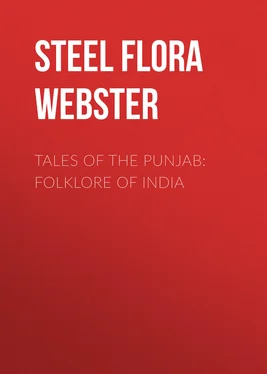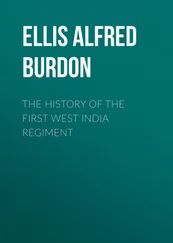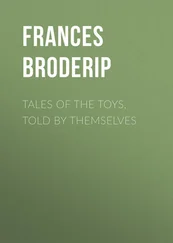Flora Steel - Tales of the Punjab - Folklore of India
Здесь есть возможность читать онлайн «Flora Steel - Tales of the Punjab - Folklore of India» — ознакомительный отрывок электронной книги совершенно бесплатно, а после прочтения отрывка купить полную версию. В некоторых случаях можно слушать аудио, скачать через торрент в формате fb2 и присутствует краткое содержание. Жанр: Сказка, Старинная литература, foreign_antique, foreign_prose, foreign_children, на английском языке. Описание произведения, (предисловие) а так же отзывы посетителей доступны на портале библиотеки ЛибКат.
- Название:Tales of the Punjab: Folklore of India
- Автор:
- Жанр:
- Год:неизвестен
- ISBN:нет данных
- Рейтинг книги:5 / 5. Голосов: 1
-
Избранное:Добавить в избранное
- Отзывы:
-
Ваша оценка:
- 100
- 1
- 2
- 3
- 4
- 5
Tales of the Punjab: Folklore of India: краткое содержание, описание и аннотация
Предлагаем к чтению аннотацию, описание, краткое содержание или предисловие (зависит от того, что написал сам автор книги «Tales of the Punjab: Folklore of India»). Если вы не нашли необходимую информацию о книге — напишите в комментариях, мы постараемся отыскать её.
Tales of the Punjab: Folklore of India — читать онлайн ознакомительный отрывок
Ниже представлен текст книги, разбитый по страницам. Система сохранения места последней прочитанной страницы, позволяет с удобством читать онлайн бесплатно книгу «Tales of the Punjab: Folklore of India», без необходимости каждый раз заново искать на чём Вы остановились. Поставьте закладку, и сможете в любой момент перейти на страницу, на которой закончили чтение.
Интервал:
Закладка:
Flora Annie Webster Steel
Tales of the Punjab: Folklore of India
Many of the tales in this collection appeared either in the Indian Antiquary , the Calcutta Review , or the Legends of the Punjab . They were then in the form of literal translations, in many cases uncouth or even unpresentable to ears polite, in all scarcely intelligible to the untravelled English reader; for it must be remembered that, with the exception of the Adventures of Raja Rasâlu, all these stories are strictly folk-tales passing current among a people who can neither read nor write, and whose diction is full of colloquialisms, and, if we choose to call them so, vulgarisms. It would be manifestly unfair, for instance, to compare the literary standard of such tales with that of the Arabian Nights , the Tales of a Parrot , or similar works. The manner in which these stories were collected is in itself sufficient to show how misleading it would be, if, with the intention of giving the conventional Eastern flavour to the text, it were to be manipulated into a flowery dignity; and as a description of the procedure will serve the double purpose of credential and excuse, the authors give it,—premising that all the stories but three have been collected by Mrs. F. A. Steel during winter tours through the various districts of which her husband has been Chief Magistrate.
A carpet is spread under a tree in the vicinity of the spot which the Magistrate has chosen for his darbâr , but far enough away from bureaucracy to let the village idlers approach it should they feel so inclined. In a very few minutes, as a rule, some of them begin to edge up to it, and as they are generally small boys, they commence nudging each other, whispering, and sniggering. The fancied approach of a chuprâsî , the 'corrupt lictor' of India, who attends at every darbâr , will however cause a sudden stampede; but after a time these become less and less frequent, the wild beasts, as it were, becoming tamer. By and by a group of women stop to gaze, and then the question 'What do you want?' invariably brings the answer 'To see your honour' ( âp ke darshan âe ). Once the ice is broken, the only difficulties are, first, to understand your visitors, and secondly, to get them to go away. When the general conversation is fairly started, inquiries are made by degrees as to how many witches there are in the village, or what cures they know for fever and the evil eye, etc . At first these are met by denials expressed in set terms, but a little patient talk will generally lead to some remarks which point the villagers' minds in the direction required, till at last, after many persuasions, some child begins a story, others correct the details, emulation conquers shyness, and finally the story-teller is brought to the front with acclamations: for there is always a story-teller par excellence in every village—generally a boy.
Then comes the need for patience, since in all probability the first story is one you have heard a hundred times, or else some pointless and disconnected jumble. At the conclusion of either, however, the teller must be profusely complimented, in the hopes of eliciting something more valuable. But it is possible to waste many hours, and in the end find yourself possessed of nothing save some feeble variant of a well-known legend, or, what is worse, a compilation of oddments which have lingered in a faulty memory from half a dozen distinct stories. After a time, however, the attentive collector is rewarded by finding that a coherent whole is growing up in his or her mind out of the shreds and patches heard here and there, and it is delight indeed when your own dim suspicion that this part of the puzzle fits into that is confirmed by finding the two incidents preserved side by side in the mouth of some perfectly unconscious witness. Some of the tales in this volume have thus been a year or more on the stocks before they had been heard sufficiently often to make their form conclusive.
And this accounts for what may be called the greater literary sequence of these tales over those to be found in many similar collections. They have been selected carefully with the object of securing a good story in what appears to be its best form; but they have not been doctored in any way, not even in the language. That is neither a transliteration—which would have needed a whole dictionary to be intelligible—nor a version orientalised to suit English tastes. It is an attempt to translate one colloquialism by another, and thus to preserve the aroma of rough ready wit existing side by side with that perfume of pure poesy which every now and again contrasts so strangely with the other. Nothing would have been easier than to alter the style; but to do so would, in the collector's opinion, have robbed the stories of all human value.
That such has been the deliberate choice may be seen at a glance through the only story which has a different origin. The Adventures of Raja Rasâlu was translated from the rough manuscript of a village accountant; and, being current in a more or less classical form, it approaches more nearly to the conventional standards of an Indian tale.
The work has been apportioned between the authors in this way. Mrs. F. A. Steel is responsible for the text, and Major R. C. Temple for the annotations.
It is therefore hoped that the form of the book may fulfil the double intention with which it was written; namely, that the text should interest children, and at the same time the notes should render it valuable to those who study Folklore on its scientific side.
F. A. Steel
R. C. Temple
TO THE LITTLE READER
Would you like to know how these stories are told? Come with me, and you shall see. There! take my hand and do not be afraid, for Prince Hassan's carpet is beneath your feet. So now!—'Hey presto!
Abracadabra!' Here we are in a Punjabi village.
It is sunset. Over the limitless plain, vast and unbroken as the heaven above, the hot cloudless sky cools slowly into shadow. The men leave their labour amid the fields, which, like an oasis in the desert, surround the mud-built village, and, plough on shoulder, drive their bullocks homewards. The women set aside their spinning-wheels, and prepare the simple evening meal. The little girls troop, basket on head, from the outskirts of the village, where all day long they have been at work, kneading, drying, and stacking the fuel-cakes so necessary in that woodless country. The boys, half hidden in clouds of dust, drive the herds of gaunt cattle and ponderous buffaloes to the thorn-hedged yards. The day is over, the day which has been so hard and toilful even for the children,—and with the night comes rest and play. The village, so deserted before, is alive with voices; the elders cluster round the courtyard doors, the little ones whoop through the narrow alleys. But as the short-lived Indian twilight dies into darkness, the voices one by one are hushed, and as the stars come out the children disappear. But not to sleep: it is too hot, for the sun which has beaten so fiercely all day on the mud walls, and floors, and roofs, has left a legacy of warmth behind it, and not till midnight will the cool breeze spring up, bringing with it refreshment and repose. How then are the long dark hours to be passed? In all the village not a lamp or candle is to be found; the only light—and that too used but sparingly and of necessity—being the dim smoky flame of an oil-fed wick. Yet, in spite of this, the hours, though dark, are not dreary, for this, in an Indian village, is story-telling time ; not only from choice, but from obedience to the well-known precept which forbids such idle amusement between sunrise and sunset. Ask little Kaniyâ, yonder, why it is that he, the best story-teller in the village, never opens his lips till after sunset, and he will grin from ear to ear, and with a flash of dark eyes and white teeth, answer that travellers lose their way when idle boys and girls tell tales by daylight. And Naraini, the herd-girl, will hang her head and cover her dusky face with her rag of a veil, if you put the question to her; or little Râm Jas shake his bald shaven poll in denial; but not one of the dark-skinned, bare-limbed village children will yield to your request for a story.
Читать дальшеИнтервал:
Закладка:
Похожие книги на «Tales of the Punjab: Folklore of India»
Представляем Вашему вниманию похожие книги на «Tales of the Punjab: Folklore of India» списком для выбора. Мы отобрали схожую по названию и смыслу литературу в надежде предоставить читателям больше вариантов отыскать новые, интересные, ещё непрочитанные произведения.
Обсуждение, отзывы о книге «Tales of the Punjab: Folklore of India» и просто собственные мнения читателей. Оставьте ваши комментарии, напишите, что Вы думаете о произведении, его смысле или главных героях. Укажите что конкретно понравилось, а что нет, и почему Вы так считаете.












